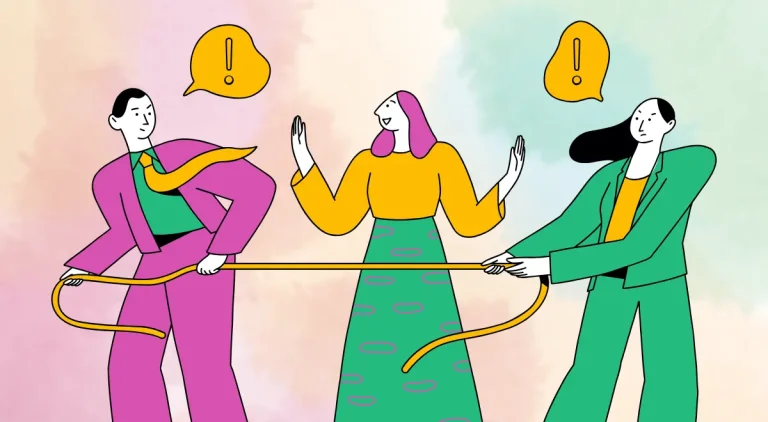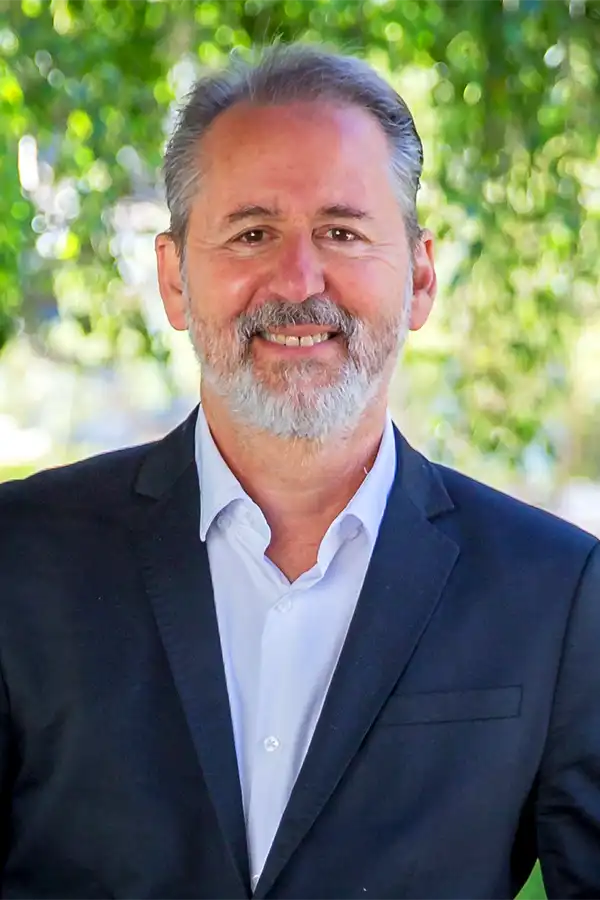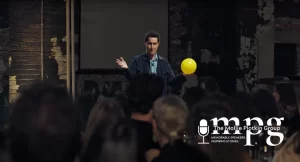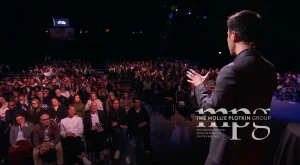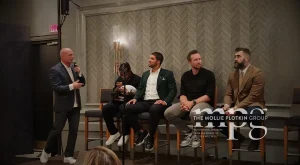Fostering a respectful and considerate environment is crucial not only for employee well-being but also for an organization’s overall success. Workplace civility, simply put, is about treating everyone with dignity and respect, regardless of their role or position. It’s about creating a space where open communication, collaboration, and mutual understanding thrive.
However, the current climate of political division presents a unique threat to this ideal. Disagreements over political issues can lead to tense exchanges, strained relationships, and even harassment or discrimination. This not only impacts employee morale and well-being, but it can also hinder productivity, collaboration, and innovation.
The consequences of incivility can be far-reaching, impacting productivity, morale, and even employee retention. When negativity and disrespect permeate a workplace, it creates a toxic atmosphere that stifles creativity, breeds resentment, and ultimately drives valuable employees away.
At the Mollie Plotkin Group (MPG), a leading talent agency for keynote speakers and subject matter experts, we understand the critical role of workplace civility in building thriving organizations. We connect our clients with top-tier speakers who provide valuable insights and strategies on a wide range of topics, including fostering a positive and respectful workplace culture.
In this article, we delve into the topic of workplace civility and political differences with insights from three renowned experts:
- Henna Pryor: An award-winning TEDx and global keynote speaker, virtual presenter, author, professional executive coach, and dynamic workplace performance expert. Henna empowers individuals and organizations to create positive and productive work environments.
- Shola Richards: A dynamic keynote speaker, best-selling author, and in-demand workplace civility expert. Shola is a leading voice in the movement to create more respectful and inclusive workplaces.
- Dr. Joshua Coleman: A leading psychologist and keynote speaker on family dynamics, estrangement, communication, and mending relationships. Dr. Coleman brings a unique perspective on conflict resolution and building stronger connections, both at home and in the workplace.
These experts offer their unique perspectives on the challenges and opportunities surrounding workplace civility, providing valuable guidance for individuals and organizations alike.
Firstly, we have Shola Richards, who explores the link between political incivility & bullying that results in exclusion.
Oftentimes, what may seem like harmless incivility on the surface can often become the gateway to more toxic behaviors, like workplace bullying.
For example, a colleague’s repeated and unchecked passive-aggressive comment about a person’s hairstyle could eventually turn into an episode of public humiliation in a team meeting. Repeated and unchecked jokes about a particular ethnic group could eventually turn into harassment toward people of that ethnic group in the workplace. Repeatedly excluding people from social events after work, could eventually lead to exclusion from key roles in important projects, or potentially, promotions.
This is why work cultures who normalize incivility are making a dangerous bet. Incivility, if left unchecked, almost always escalates into more toxic behaviors that can harm work cultures, people’s careers, and their mental health. The mantra when it comes to workplace incivility is simple: what we allow is what will continue.
Next, Henna Pryor, dives further into the subtle and often overlooked signs of incivility, and how to communicate political beliefs respectfully and constructively.
You know those subtle moments that leave a bitter taste in your mouth? Like eye rolls, dismissive sighs, or passive-aggressive comments when political views inevitably collide. They might seem small, but they quietly chip away at workplace culture. Tackling this starts with empathy — the kind that goes beyond lip service. Real empathy requires actively checking and ditching our instinct to judge and leaning into ostentatious curiosity, even when someone’s views clash with ours. The word “ostentatious” is key. When getting curious, make a show of it!
When chatting with a colleague who sees the world differently, what can you ask them to find an undiscovered perspective? Instead of gearing up to “correct” or convert them, ask questions like, “That’s interesting, what led you to that view?” It might not change your opinion, but it builds bridges instead of walls.
If you can’t resist the urge to share your own beliefs, aim for respect over persuasion. Start by finding common ground. (For example, a shared desire for safety and security, or a love of community and family.) You can share your perspective without the intent to persuade or “win” the conversation. And if the air gets tense, don’t shy away from it — counterintuitively, naming awkwardness can often defuse awkwardness. By reframing these moments as opportunities to practice deeper perspective-taking, we turn potential stumbling blocks into stepping stones for connection. Even a small, imperfectly-executed attempt at respect can preserve — even strengthen! — the workplace bonds that matter most.
Building a Civil Workplace
We will close with perspectives from Dr. Joshua Coleman, who gives us the reasons why empathy is powerful and effective, and also how to work through these difficult interactions.
Online articles are awash with advice about narcissists, gaslighters, and toxic people. We are constantly advised about how to spot them and cut them out of our lives. Setting better boundaries with family, friends and coworkers is cast as a necessary tool for surviving and thriving in today’s challenging social world. However true that may be, empathy and curiosity about another’s experience and perspective are far more powerful ways to reduce conflict and increase collaboration.
Dr. Coleman’s comments, continued:
There are a number of reasons why reaching out with empathy and curiosity is so powerful and effective.
- It invites the same from the other. As soon as we go into defensive mode, we have already lost the conversation. Our defensiveness, annoyance, or criticism signals to the other that we’re a threat which elicits a defensive response from them. This can occur in the form of either fight or flight. Fight means an escalation of the conflict, flight resulting in their avoiding you and either never working through the conflict or losing their faith in your ability to productively engage with them
- Studies show that as soon as your heart rate goes 10 beats per minute above normal, your ability to problem solve or think clearly declines
- Showing that you truly understand the other’s perspective, even when you disagree, is far more likely to motivate them to be interested in solving the problem and working through it.
- Being curious about the other’s perspective is a form of respect which invites a respectful response in return
Ongoing conflict with friends, family or co-workers is bad for our health and well-being. It causes us to ruminate, to feel guilty, or to be mired in ongoing feelings of anger and resentment. Learning how to work through difficult interactions is not only key to a productive work environment but essential for your mental health.
The following are key:
- Learn the fine art of “active listening.” Active listening involves listening from the perspective of trying hard to hear and understand what the other is saying without trying to prove them wrong while you’re listening.
- Mirror back what you heard: Simply repeating back what the other said in a respectful way, even if you strongly disagree, is essential to moving a conversation forward. “I hear you. It sounds like from your experience working with me, you end up feeling______.” Or “I see. When I said x it sounded like I was saying y.”
- Find the kernel or bushel of truth in their complaint or perspective. “I could see how you got there. I was in a rush that day and could see how I came across as critical or impatient.” Or “I have heard that I can sound more angry than I’m aware of. I appreciate the feedback.”
- Apologize the right way. Do say, “I’m sorry. I could see why that would’ve felt bad to you.” Not, “I’m sorry you feel that way. “
- Thank the other for their feedback even if you don’t agree with them. “I appreciate you letting me know.”
- Close the loop: “If it comes up again, please let me know.”
Review of Shola Richards, Henna Pryor, and Joshua Coleman
Fostering a civil workplace requires a multi-faceted approach, integrating the wisdom of Shola Richards, Henna Pryor, and Dr. Joshua Coleman. We must recognize, as Richards emphasizes, that unchecked incivility escalates into toxic behaviors, impacting individuals and the organization as a whole. Therefore, workplace culture must proactively address even subtle signs of incivility, as Pryor advises, by promoting empathy, curiosity, and respectful communication, especially when political beliefs diverge. Finally, embracing Coleman’s insights on active listening, acknowledging perspectives, and offering genuine apologies empowers us to resolve conflicts constructively and build stronger workplace bonds. Ultimately, by prioritizing empathy and respectful communication, we cultivate a workplace where understanding, collaboration, and mutual respect thrive.
The ripple effects of incivility extend far beyond the initial encounter, impacting individuals and the organization as a whole. Let’s explore the detrimental consequences:
Employee Morale and Engagement
When incivility becomes a pattern, it erodes trust and creates a hostile environment. Employees who feel disrespected or undervalued are less likely to be engaged in their work, leading to decreased motivation and commitment. A study by the Harvard Business Review found that 78% of employees who experienced incivility reported a decline in their commitment to the organization.
Productivity and Innovation
Incivility acts as a constant distraction, diverting mental energy away from productive tasks. Employees spend time worrying about the incident, avoiding the offender, or simply trying to cope with the emotional fallout. This can lead to decreased focus, errors, and missed deadlines. Research has shown that exposure to rude behavior can impair cognitive function, hindering problem-solving and creativity.
Company Reputation and Employer Branding
In today’s digital age, news of workplace incivility can spread quickly, damaging a company’s reputation and making it harder to attract and retain top talent. This can also affect customer relationships, as employees who feel mistreated may be less likely to provide excellent service.
Employee Mental Health and Well-being
Workplace incivility can have a profound impact on an individual’s mental and emotional health. Exposure to rude behavior can trigger stress, anxiety, and even depression. A study published by the American Psychological Association found that workplace incivility was associated with increased sleep problems and emotional exhaustion. In severe cases, it can even lead to physical health issues.
The statistics paint a clear picture: incivility is not just a matter of bad manners; it’s a serious issue with tangible consequences. By fostering a culture of respect and addressing incivility promptly, organizations can create a healthier, more productive, and more engaging work environment for everyone.
Conclusion
In conclusion, fostering a civil workplace requires a multi-faceted approach, integrating the wisdom of our three experts. Shola Richards highlights the dangers of unchecked incivility, reminding us that seemingly small offenses can escalate into toxic behaviors with far-reaching consequences. Henna Pryor encourages us to embrace empathy and curiosity, even when faced with differing political viewpoints, transforming potential conflict into opportunities for connection.
Dr. Joshua Coleman underscores the power of active listening and genuine understanding in resolving disagreements and fostering a healthier, more productive work environment. By actively prioritizing civility, respectful communication, and empathetic engagement, we can create workplaces where every individual feels valued, respected, and heard.
Take the first step today! Learn more about Shola Richards, Henna Pryor, Dr. Joshua Coleman, and how MPG’s services can help your organization build a more positive and productive workplace culture.
